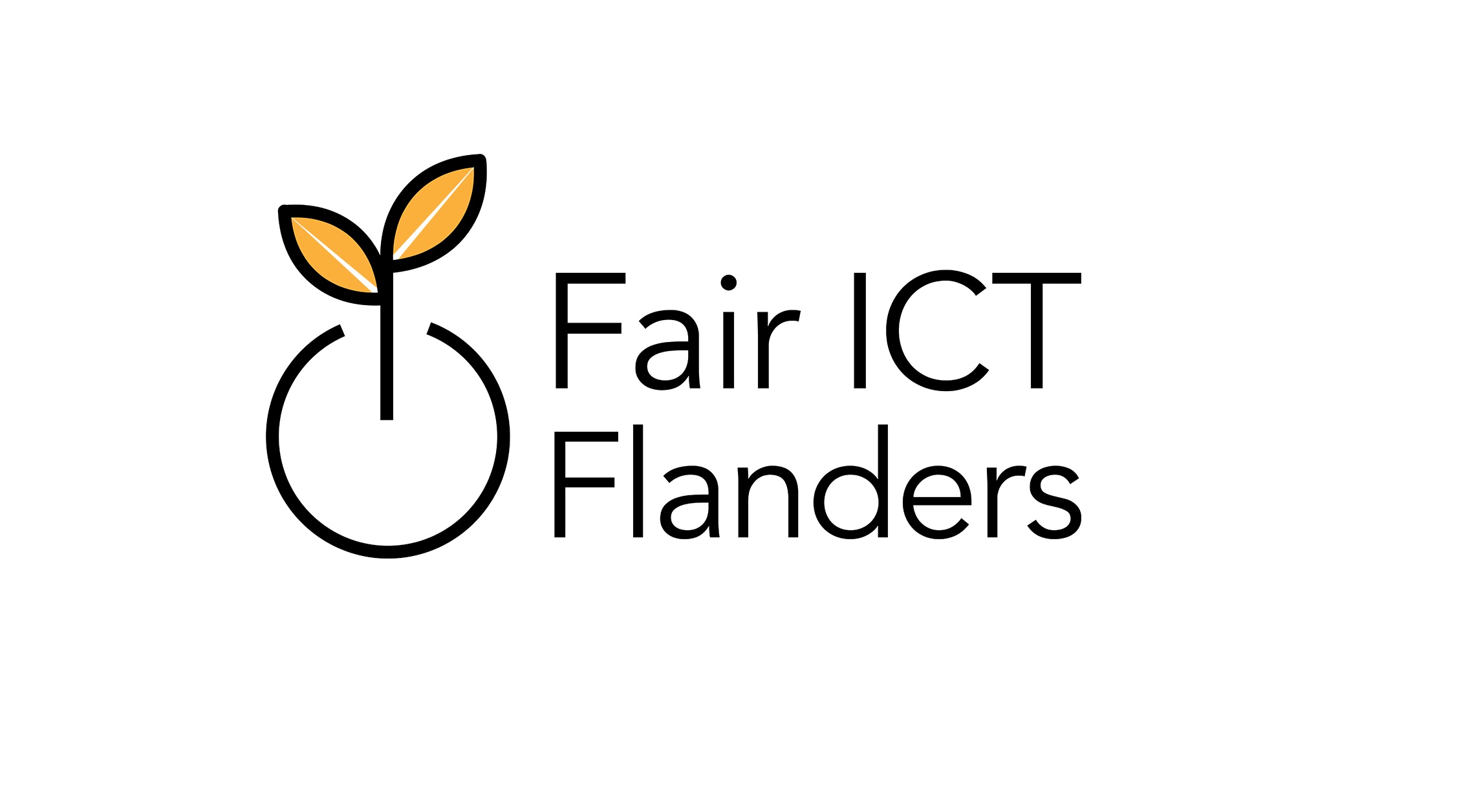
This project is run by the non-profit organization CATAPA vzw, the umbrella organization of Flemish environmental groups Bond Beter Leefmilieu (Society for a Better Environment) and Ondernemers voor Ondernemers (Entrepreneurs for Entrepreneurs) and aims at improving the sustainability of ICT procurement and reuse policies in Flanders. Since 2005, CATAPA has been dealing with the socio-ecological impact of mining. Fair ICT Flanders will run for three years and is financed by the Flemish government.
Context
The production of ICT devices such as smartphones, computers and laptops has a substantial impact on people and the environment. The extraction of the metals and minerals needed for these devices often involves human rights’ violations and ecological destruction; and assembling laptops and smartphones takes place in low-wage factories where labour rights are ignored. The useful life of these products is very short and ICT design is currently not aimed at reusing the smaller parts they are composed of, which results in a gigantic volume of e-waste. Besides, nearly 4 % of global greenhouse gas emissions originate from the ICT sector.
Target group
The project is aimed at big ICT consumers in Flanders. Institutes of higher education, local governments and enterprises might play a considerable role in influencing ICT companies to make their supply chain more sustainable in a well-structured way. The use of social and ecological criteria in procurement procedures is therefore essential. Sustainable ICT procurement policy may function as an important leverage for a better world.
Objectives
The project Fair ICT Flanders intends to make companies, governments and institutes of higher education take tangible steps to develop sustainable ICT procurement and reuse policies. The ultimate goal is to achieve a more sustainable future and better labour and living conditions of communities impacted by the extractive and ICT production sectors in Latin America, Asia and Africa.
Methodology
Based on a variety of working practices, the project will offer an intensive guidance trajectory to pilot institutions. Learning platforms, webinars and toolboxes will be developed in order to guide procurement officers within their organizations. Both the shared learning process and the exchange of good practices among the various institutions will inspire future ICT policy.
Will your organization lead the way?
Will your organization lead the way towards sustainability? Does it wish to keep up with the standards of the future? Will your organization become more environmentally conscious in its procurement procedures while also using resources sparingly? Is your organization willing to reduce its impact on the environment and climate? If so, engage in the project as a pilot participant and take advantage of three years’ intensive support. By doing so you will be able to take tangible steps in making your procurement policy more sustainable while focusing on current electronics.
Are you interested and/or do you have questions?
Don’t hesitate to contact Kim Claes: kim.claes@catapa.be.
The Flemish Government shall not be held responsible for the contents of this publication.




